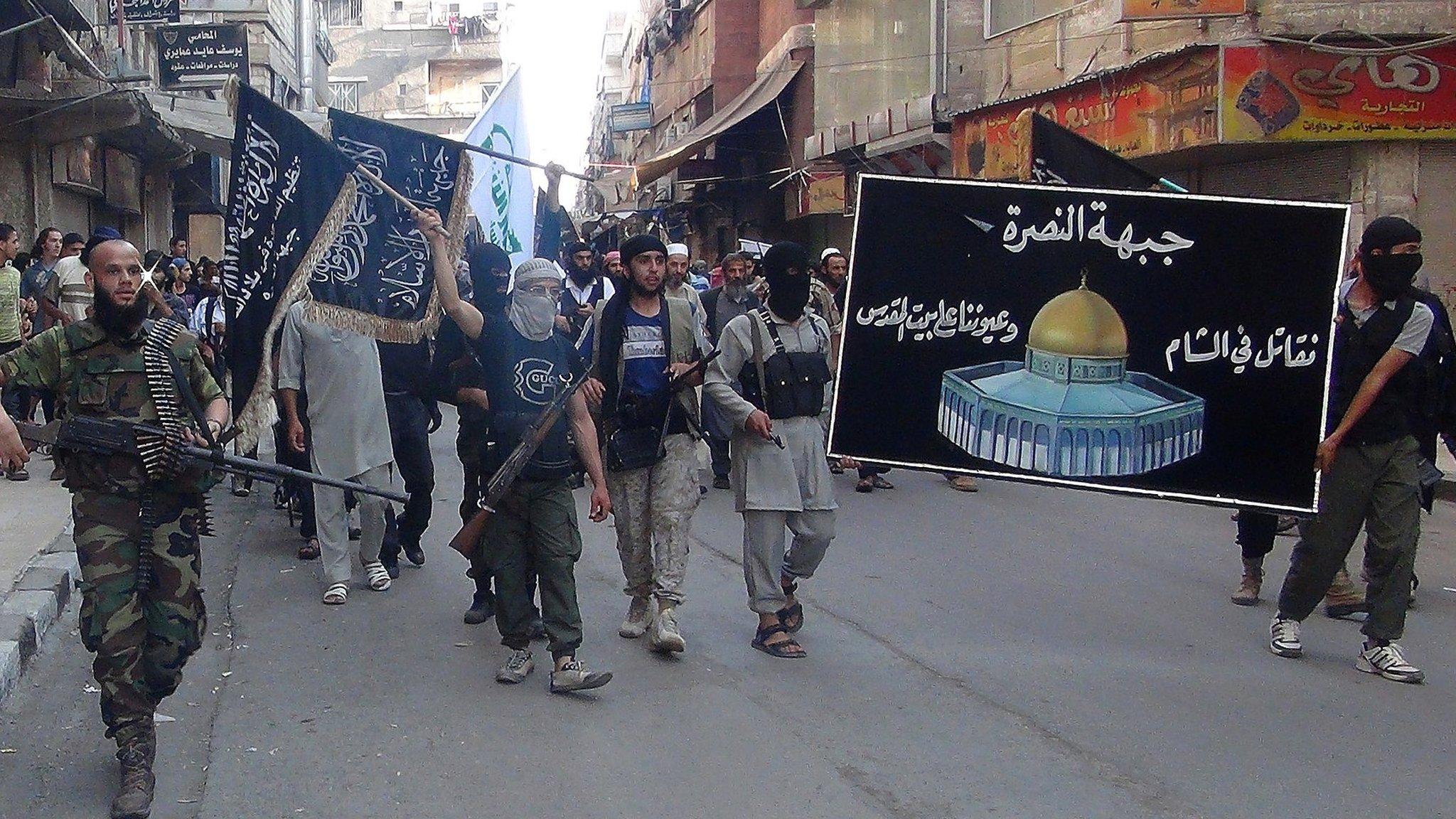Charlie Hebdo attack spurs EU anti-terror 'projects'
- Published
Federica Mogherini said that better communication with Arab states was vital
European states have agreed to launch anti-terror "projects" with Muslim-majority nations and improve Arabic skills in response to the Charlie Hebdo attacks in France.
EU foreign policy chief Federica Mogherini made the announcement after talks in Brussels, but gave no details.
Security officials would be appointed at some EU foreign missions and Arabic-language capacity would be boosted.
Islamist gunmen killed 17 people in twin attacks in Paris this month.
Two of the Paris gunmen had links to groups based in the Middle East, and said they were "avenging" cartoons of the Prophet Muhammad in Charlie Hebdo magazine.
They stormed the magazine's office and opened fire using automatic weapons, killing 12 people died.
A third gunman killed four Jewish people at a kosher supermarket. A policewoman was also shot dead.
'Speak, write, listen'
The EU's 28 foreign ministers met in Brussels ahead of a summit of leaders on 12 February.
After the meeting, Ms Mogherini said there projects would be established in collaboration with Turkey, Egypt, Yemen, Algeria and Gulf states.
The EU would step up intelligence-sharing both internally and with countries affected by terrorism, she said, and increase its work to prevent funding for terrorist networks.
The European Parliament, she added, would be asked to work on legislation covering the sharing of airline passenger data.
Ms Mogherini said new attaches at some EU foreign missions would be tasked with developing "security and anti-terror co-operation".
On the language initiative, she said: "I want immediately to improve our communication with the Arab-speaking populations both within the EU and in the world.
"We need to improve our capacity to speak Arabic, to write in Arabic and to listen to the messages that are coming from the Arab world."

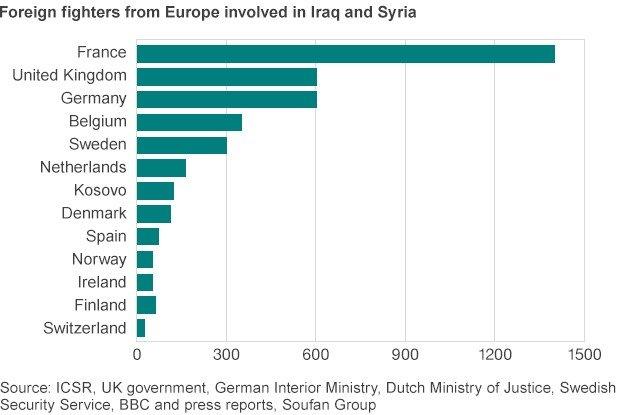

Arab League Secretary General Nabil al-Arabi, who also attended the talks, said every country in the world was suffering from terrorism.
"It is not just a military or security issue, it covers the intellectual, cultural, media and religious spheres," he added.
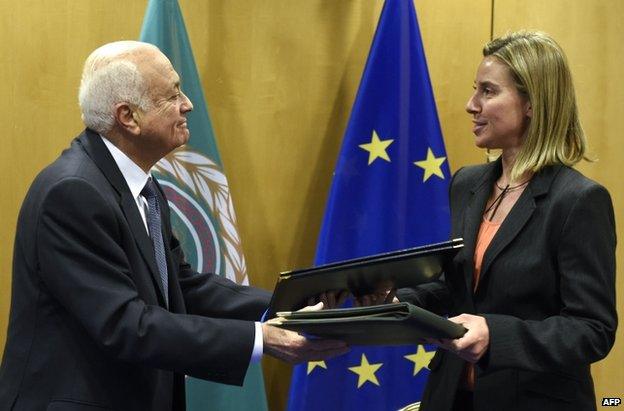
Arab League Secretary General Nabil al-Arabi (left) exchanged documents with the EU's Federica Mogherini
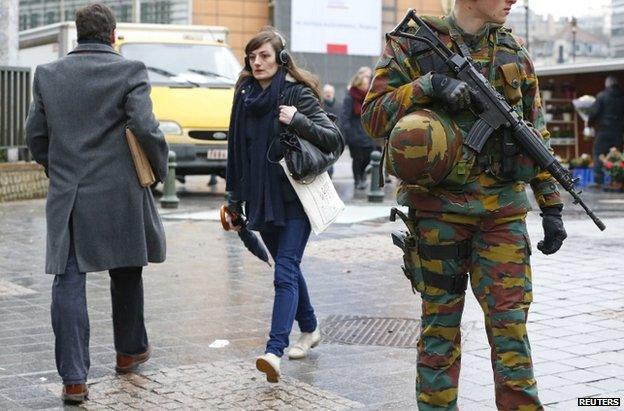
Soldiers have been patrolling Belgian cities as part of security measures
In other developments as the ministers were meeting:
Tens of thousands of people rallied in Grozny, capital of Russia's mainly Muslim region of Chechnya, to protest against Charlie Hebdo
In Gaza City, the Palestinian group Hamas allowed a demonstration against the magazine by Salafists, at which a French flag was burnt
A planned rally by Germany's "anti-Islamisation" Pegida group was called off after police received a threat against one of the organisers
Hundreds attended an anti-Islam rally in the Czech capital Prague and a Pegida-style march was due to take place in the Danish capital Copenhagen
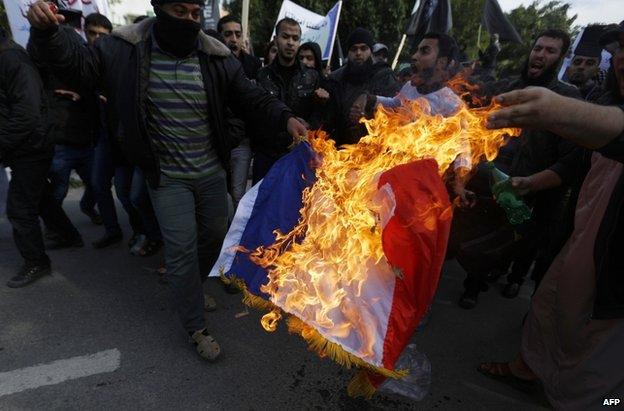
Palestinian demonstrators burnt a French flag in Gaza City on Monday
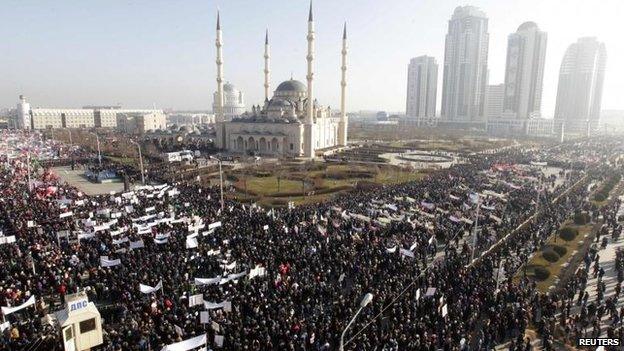
Estimates said several hundred thousand people attended the anti-Charlie Hebdo protest in Grozny
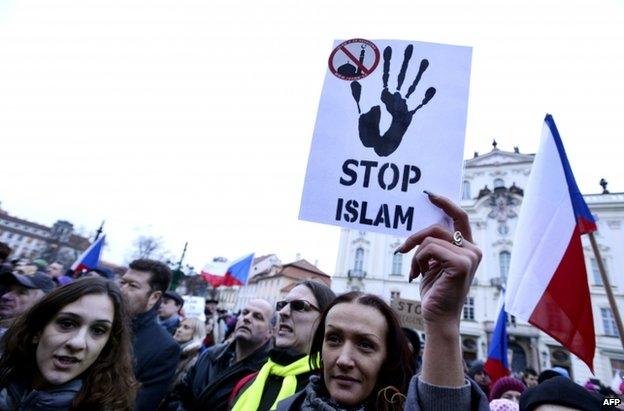
Hundreds of people attended the anti-Islam rally in Prague
EU interior ministers will discuss their response to the terrorist threat when they gather in Riga on 29 January.
On Thursday, members of the US-led coalition against Islamic State will meet in London. US Secretary of State John Kerry will attend.
International outrage
The Paris attacks drew international outrage and a huge anti-terrorism rally in Paris was attended by many world leaders.
Since the attacks, police in Belgium have uncovered what they say was a terror plot, killing two suspected jihadists in the town of Verviers.
Ben Bland reports on the heightened security across Europe
Other anti-terrorist arrests have been made in Greece and Germany.
Elsewhere, the EU said on Monday it would appeal against a European court ruling last month that it must remove Hamas from its list of terrorist organisations.
As a result of the appeal, Hamas will remain on the list and its assets will stay frozen pending a judgment by the Court of Justice, the highest legal authority.
- Published17 January 2015
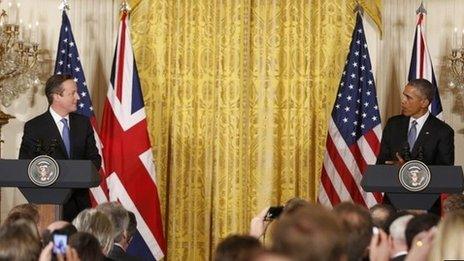
- Published16 January 2015
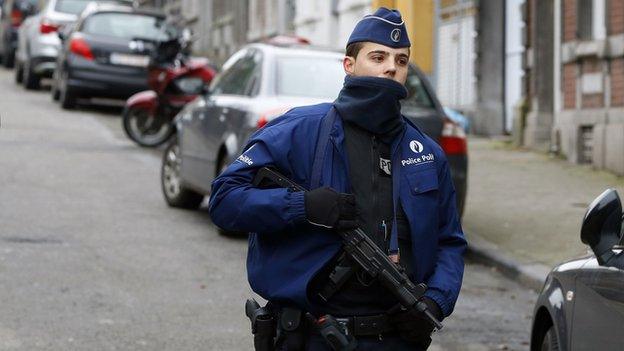
- Published13 January 2015
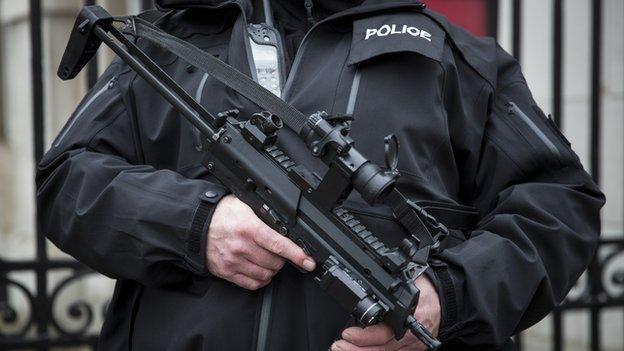
- Published3 September 2014
